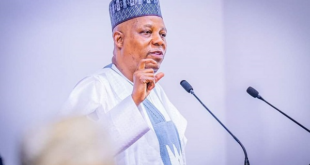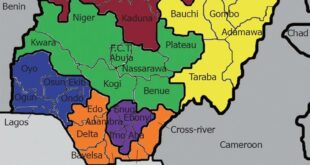By Busayo Onijala
Dr Bobby Moroe, South Africa’s Consul General in Lagos says there are approximately 120 South African businesses in Nigeria, but in the past few years, there had been a slow withdrawal of some, especially in the retail sector.
Conversely, he says there are fewer than 10 registered Nigerian companies in South Africa, raising questions about why such was the case.
Moroe spoke on Tuesday at the South-Africa- Nigeria Trade and Investment Roundtable hosted in partnership with Access Bank, as part of activities to mark the inaugural South Africa Week.
The News Agency of Nigeria (NAN) reports that South Africa Week was organised by the South African Consulate to commemorate the 29th Anniversary of the country’s democracy and 29 years of formal diplomatic relations with Nigeria.
“Why are there fewer investments from Nigeria to South Africa, and yet, South Africa has so many investments in Nigeria and what kind of opportunities do you think the South African government should create for Nigerian business in South Africa?
He noted that one of the reasons for this development could be because of visas, which was a topical issue in his day to day discussions.
Moroe, however, said that currently, Nigerian businessmen, as well as scholars could get up to a 10-year visa for their categories.
He further said this was a commitment of his government to Nigerian businesses in order to make sure that with ease, the movement of people from Nigeria to South Africa was facilitated, and vice versa.
“South Africa is open for business, investment and tourism,” he said.
Moroe also said the relationship between South Africa and Nigeria would be revitalised when custodians of bilateral relations start telling “their own stories”.
The consul general said wrong stories had been told about his country and Nigeria because for far too long, custodians had taken a backseat.
This, he said, created the gap that had been utilised by naysayers for the past 29 years to project both continental giants as competitors for the hegemony of the continent.
He said that it was time to close that gap and expose the nature of the relationship, its genesis and the shared South-Africa-Nigeria common vision.
According to him, South Africa and Nigeria have very great stature globally and it is through both countries that the African Union’s Agenda 2063 will be achieved.
NAN also reports that Agenda 2063 is Africa’s blueprint and master plan for transforming the continent into the global powerhouse of the future.
Moroe said that both countries had no choice but to work together as brother and sister to make sure that the objectives that had been set through the agenda 2063 would be achieved.
“Today, we gather here as business communities from both South Africa and Nigeria to navigate challenges and prospects in the business landscape between the two countries.
“We have to start to reflect very honestly about what we have done in order to ensure that we grow business portfolios, both in South Africa and Nigeria.”
In his keynote address, Mr Nyameko Goso, Chief Director, West Africa, Department of International Relations and Cooperation, South Africa, said the importance of both countries’ relationship was rooted in the total support received from Nigeria in South Africa’s struggle for freedom.
According to him, many more opportunities exist to deepen trade investment between both countries.
He said there were vast opportunities in the operation sector, insurance, medical tourism, entertainment industry, music, feeding, fishing, infrastructure development, among others.
“It is said that one of the enablers of Intra-Africa trade is through infrastructure and if we don’t have infrastructure, we can’t do meaningful trades between the countries on the continent.
“Our film and music industry players are already doing a lot in the continental social infrastructure development and more is still required. Our bond with Nigeria will forever be strong despite challenges we face.
“Security and stability are also some of the key factors our countries must work on and in this regard, we must ensure the strengthening of government and governance,” Goso said.
(NAN)
Subscribe to the Advocate News letter and receive news updates daily in your inbox.
 Advocate.ng Latest news update on politics, entertainment, sport and more
Advocate.ng Latest news update on politics, entertainment, sport and more




